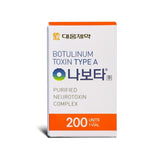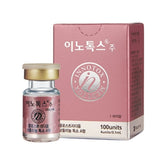The Science of Hair Growth: Understanding the Hair Growth Cycle

The Science of Hair Growth: Understanding the Hair Growth Cycle. Hair growth is a fascinating biological process that plays a significant role in our overall appearance and self-esteem. Whether you're looking to improve your hair care routine or address hair loss issues, understanding the science of hair growth is essential. This blog post delves into the hair growth cycle, explaining its phases and the factors that influence hair health.
The Hair Growth Cycle
The hair growth cycle consists of three main phases: anagen, catagen, and telogen. Each hair follicle undergoes these phases independently, ensuring continuous hair renewal and growth.
1. Anagen Phase (Growth Phase)
The anagen phase is the active growth phase of the hair follicle. During this period, cells in the hair root divide rapidly, adding to the hair shaft. This phase can last anywhere from two to six years, depending on genetic factors and individual health. Approximately 85-90% of the hair on your scalp is in the anagen phase at any given time.
- Duration: 2-6 years
- Characteristics: Rapid cell division, hair growth of about 1 cm per month
- Influencing Factors: Genetics, age, health, and nutrition
2. Catagen Phase (Transitional Phase)
The catagen phase is a short transitional phase that marks the end of active hair growth. During this phase, the hair follicle shrinks, and the hair detaches from the blood supply, becoming a club hair. The catagen phase lasts about two to three weeks and involves about 1-2% of the hair on your scalp at any given time.
- Duration: 2-3 weeks
- Characteristics: Hair follicle shrinks, hair detaches from blood supply
- Influencing Factors:Hormonal changes, stress
3. Telogen Phase (Resting Phase)
The telogen phase is the resting phase of the hair cycle. During this period, the hair follicle remains inactive, and the club hair is fully formed. This phase lasts about three months, and at the end of it, the hair is shed, and the follicle re-enters the anagen phase to start a new cycle. Approximately 10-15% of the hair on your scalp is in the telogen phase at any given time.
- Duration: 3 months
- Characteristics: Hair follicle rests, hair is eventually shed
- Influencing Factors: Seasonal changes, overall health, stress
Factors Affecting Hair Growth
Several factors can influence the hair growth cycle, affecting the length, thickness, and health of your hair. Understanding these factors can help you take better care of your hair and address any growth issues.
Genetics
Genetics play a crucial role in determining the length of the anagen phase, hair density, and overall growth patterns. If your parents had thick, long hair, you're more likely to have similar hair growth patterns.
Hormonal Changes
Hormones significantly impact hair growth. For example, an increase in androgens (male hormones) can lead to shorter anagen phases and thinner hair, a condition known as androgenic alopecia. Pregnancy, menopause, and thyroid conditions can also cause hormonal fluctuations that affect hair growth.
Nutrition
A balanced diet rich in vitamins and minerals is essential for healthy hair growth. Key nutrients that support hair health include:
- Biotin: Promotes hair growth and strengthens hair.
- Iron: Prevents hair thinning and loss.
- Vitamin D: Stimulates hair follicles.
- Protein: Essential for keratin production, the main component of hair.
Stress
Chronic stress can disrupt the hair growth cycle, pushing hair follicles into the telogen phase prematurely, leading to increased hair shedding. Managing stress through relaxation techniques, exercise, and proper sleep can help maintain healthy hair growth.
Hair Care Practices
How you care for your hair can influence its growth and health. Over-styling, excessive use of heat tools, and harsh chemical treatments can damage hair and disrupt the growth cycle. Gentle hair care practices, such as using sulfate-free shampoos, avoiding excessive heat, and regular conditioning, can support healthy hair growth.
Common Hair Growth Issues
Understanding common hair growth issues can help you identify and address them effectively.
Hair Thinning
Hair thinning can result from a variety of factors, including genetics, hormonal changes, and poor nutrition. Addressing the underlying cause, such as improving diet or managing hormonal imbalances, can help restore hair density.
Hair Loss (Alopecia)
Hair loss, or alopecia, can be temporary or permanent and can affect the scalp or the entire body. Causes include genetics, medical conditions, medications, and stress. Treatments vary based on the cause and can include topical treatments, medications, and lifestyle changes.
Slower Hair Growth
If you notice that your hair isn't growing as quickly as it used to, it could be due to a shortened anagen phase or external factors such as poor nutrition and stress. Focusing on a healthy diet, stress management, and proper hair care can promote faster growth.
Tips for Promoting Healthy Hair Growth
By understanding the factors that influence hair growth, you can take steps to promote healthier, longer hair.
- Eat a Balanced Diet: Ensure your diet includes plenty of vitamins and minerals that support hair health, such as biotin, iron, vitamin D, and protein.
- Manage Stress: Practice stress-reducing techniques like meditation, yoga, and regular exercise to maintain a healthy hair growth cycle.
- Use Gentle Hair Care Products: Opt for sulfate-free shampoos and conditioners that nourish your hair without stripping it of natural oils.
- Avoid Excessive Heat and Chemical Treatments: Limit the use of heat styling tools and harsh chemical treatments that can damage hair.
- Get Regular Trims: Regular trims prevent split ends and breakage, promoting healthier hair growth.
The science of hair growth is a complex and fascinating process influenced by genetics, hormones, nutrition, and overall health. By understanding the hair growth cycle and the factors that affect it, you can take proactive steps to maintain and improve your hair's health. Whether you're looking to enhance your hair care routine or address specific growth issues, a comprehensive approach that includes a balanced diet, stress management, and gentle hair care practices can help you achieve and maintain beautiful, healthy hair.
If you experience persistent hair growth issues, consider consulting a healthcare provider or a dermatologist to identify underlying causes and develop a personalized treatment plan. With the right care and attention, you can support your hair's natural growth cycle and enjoy a fuller, healthier head of hair.





